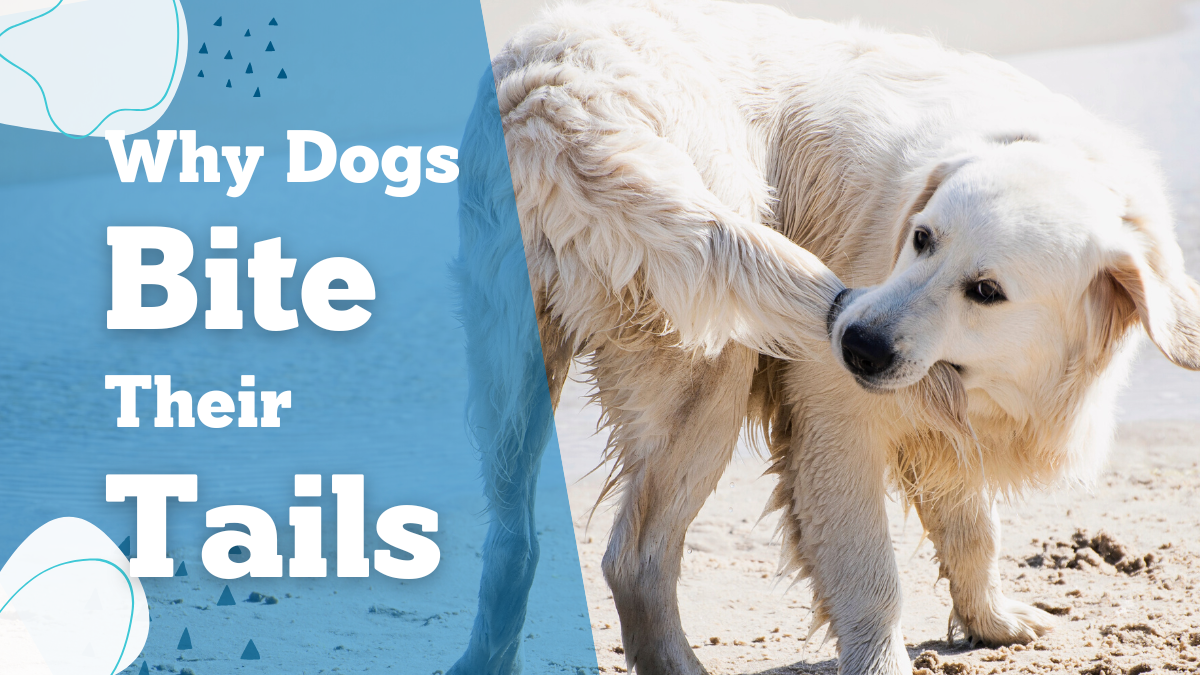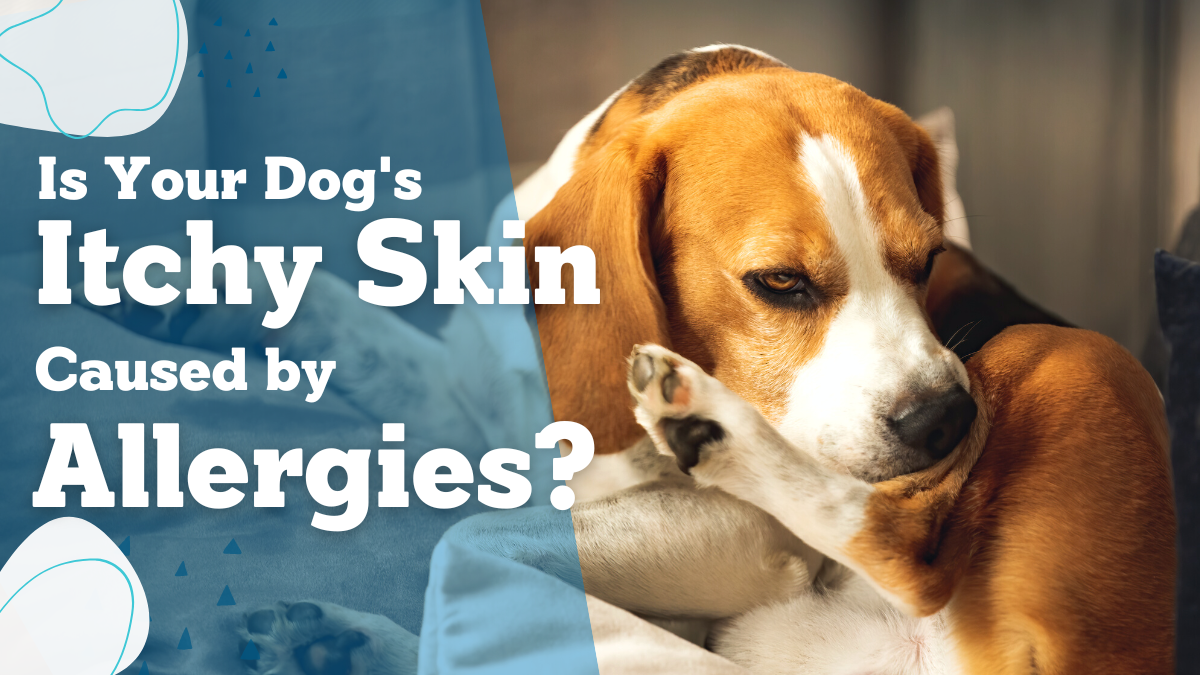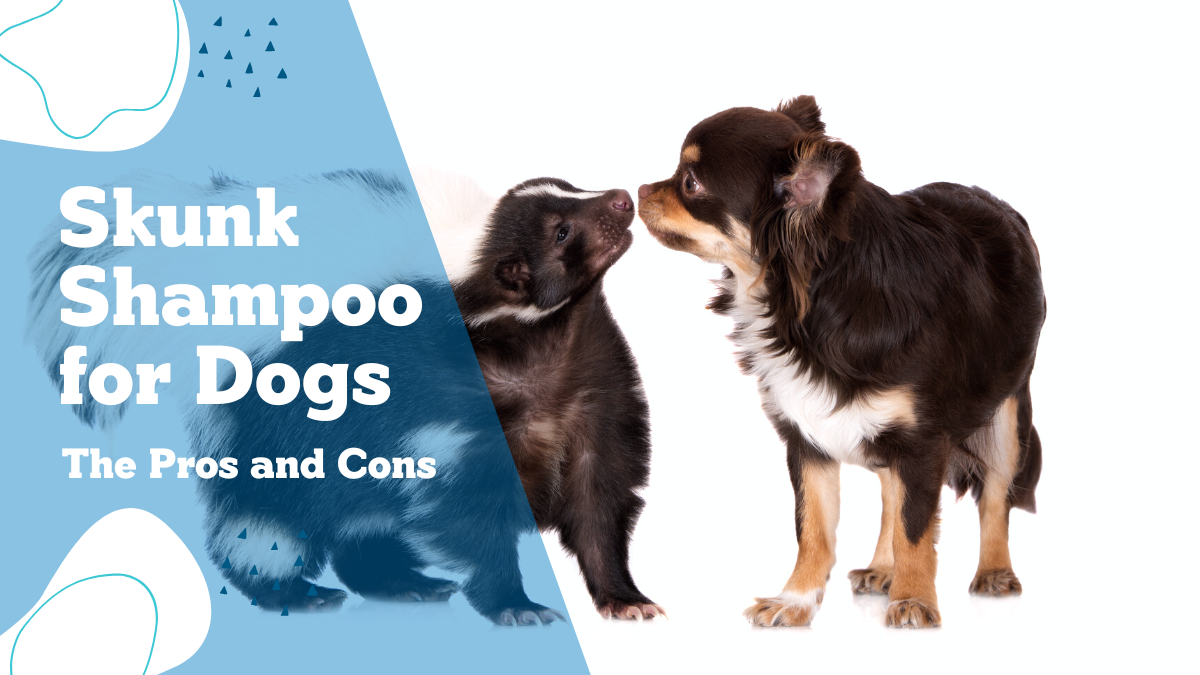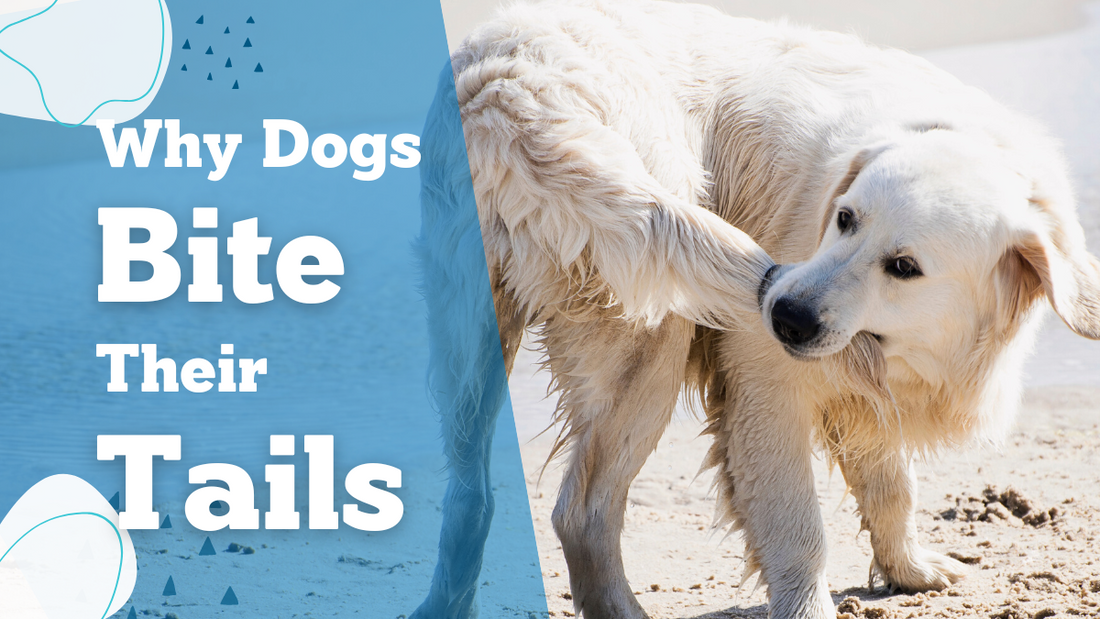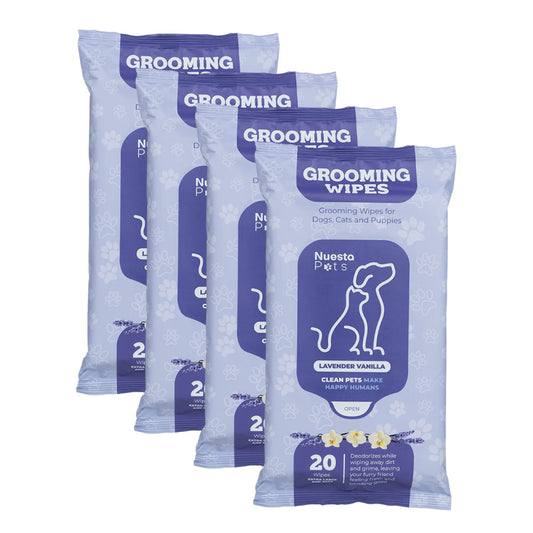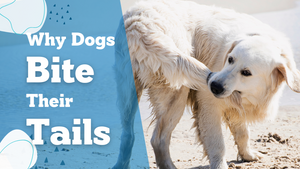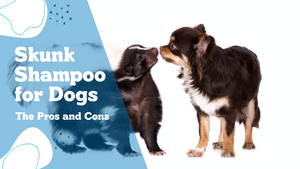Have you ever noticed your dog biting his tail? It can be a confusing and concerning sight, but there are some common reasons why dogs do this.
In this article, we will explore the various causes of tail-biting as well as ways to help stop them from doing so.
What Causes Tail-Biting?
First, it’s important to note that tail-biting and tail-chasing are normal behaviors in dogs. They could be exploring their own body and just find their tail fascinating or entertaining. Sometimes, they may be trying to relieve an itchy spot or soothe themselves if they’re feeling anxious. In other cases, this behavior could be caused by boredom or lack of stimulation.
When Does Tail-Biting Become a Problem?
A dog's tail-biting can become a behavioral problem if it is done in excess or if the dog starts to injure himself while he is trying to satisfy his urges. Understanding the reasons why your dog is biting his tail can help you find relief for him.

Physical Causes of a Dog Tail-Biting
Allergies
Sometimes dogs might compulsively bite their tail if they have itchy skin from allergies. They could be trying to scratch the spot to make it feel better.
What Can Cause Allergies?
Dog allergies can be caused by a variety of sources, including environmental allergens like dust mites, mold spores, and pollen. Dogs are also susceptible to food allergies, which can be triggered by ingredients like corn, wheat, soy, and dairy. Other common irritants include saliva from a flea bite, household chemicals, detergents, and shampoos.
How to Treat Allergies
Scan your dog's fur and skin to check for any common signs of an allergic reaction, such as redness, flaky or scaly skin, excessive licking, or skin infections.
If your dog has allergy symptoms, you should consult a vet to determine the underlying cause and develop a treatment plan. Depending on the severity, treatment options may include topical or oral medication to reduce skin irritation from environmental allergies, or an elimination diet to identify a food allergy.
Dog owners should make lifestyle changes to minimize exposure to allergens and help prevent allergic reactions. This includes regularly cleaning your pet’s living environment, using hypoallergenic shampoos and products, avoiding contact with known allergens such as grass or plants outdoors, and changing their food to remove food allergies as necessary.

Injuries
If your dog appears to be biting his tail excessively and there is no apparent cause, it could be that he is trying to soothe the area due to a hidden injury.
Types of Injuries
Injuries that could cause tail chewing include hot spots, wounds, fractures, sprains and strains, abscesses, tumors, and foreign objects lodged in the skin. Painful conditions like arthritis may also lead to excessive biting at the tail area.
How to Treat Injuries
Thoroughly examine your dog's body for any injuries, including small cuts and scrapes, as well as more serious conditions like hot spots or broken bones.
If you suspect that something is wrong with your pet, we recommend taking your dog for a vet visit as soon as possible to ensure they are properly treated. Depending on the type and severity of the injury, treatment options can vary from simple lifestyle changes to more complex medical interventions.

Parasites
Internal parasites and parasitic infections can be very dangerous for dogs and cats. These parasites live inside the body, feeding on their host's blood or tissue, which can cause a range of symptoms from mild discomfort to severe illness.
Types of Parasites
Parasites like fleas, ticks, mites, and worms can cause tail irritation and result in dogs feeling the urge to bite their tail. In some cases, these parasites may even burrow into your dog’s skin resulting in more severe itching and pain.
How to Treat Parasites
A vet can determine if your dog is suffering from parasites, and prescribe the appropriate treatment. To prevent further parasitic infestations, use flea or tick preventatives as well as heartworm preventatives.
Impacted Anal Glands
Impacted anal glands can be a painful and uncomfortable condition that causes dog tail-biting.
What Can Cause Impacted Anal Glands?
Anal glands are small sacs located on either side of the anus. If these glands become blocked, they can become swollen and irritated. This can cause severe discomfort in your pet as well as an unpleasant odor by the rear end.
Many dogs often exhibit scooting behavior, where they drag their hindquarters along the ground as a way to relieve itching and pressure in the affected area.
How to Treat Anal Glands
Depending on the severity, treatment may include manual expression of the glands, antibiotics, or surgery.

Mental Causes of a Dog Tail-Biting
Stress or Anxiety
Dogs that are feeling anxious might start to chew their tails to self-soothe. If you notice this instinctual behavior, it’s possible your dog is feeling stressed or overwhelmed and needs a way to calm down.
What Can Cause Stress?
Dogs are highly sensitive creatures who can experience anxiety for a variety of reasons. Just like humans, dogs can feel overwhelmed by their environment or certain situations, leading to increased levels of cortisol and compulsive behavior.
Common causes of canine stress include changes in routine, loud noises, unfamiliar people or animals, separation from owners, and fear-inducing experiences.
How to Treat Stress
Anxious dogs can often be calmed down with patience and understanding. To help reduce stress levels in pets, owners can use different techniques, including maintaining consistent routines, minimizing environmental stimulation, providing a safe space for them to retreat when they feel overwhelmed, and utilizing supplements or medication if needed. Additionally, showing dogs affection and taking the time to bond with them through activities like playing fetch or going for walks can also have positive effects on their emotional state.
Boredom
Dogs are intelligent creatures with a natural instinct to explore and learn. When they don't get enough mental stimulation, they can become bored and start biting their tail.
What Can Cause Boredom?
Boredom in dogs is usually caused by inadequate physical activity, lack of social interaction, or an environment that doesn't stimulate their minds. When dogs feel bored, they may display destructive behaviors such as chewing, digging, and excessive barking.
How to Treat Boredom
The best way to treat boredom in pets is to provide them with lots of interactive activities that keep them entertained and mentally stimulated. Spending quality time with your dog, providing enrichment toys, attending obedience classes or agility training, and going for regular long walks are all great ways to help keep your dog's mind active and engaged.

Training Tips to Stop Dog Tail-Biting
Once you have addressed the causes of your dog's tail-biting, it's time to begin training him to stop this behavior. Fortunately, several different techniques can be used to help get your dog to stop biting.
Whenever you notice your dog chewing on his tail, try to redirect him with a favorite game or activity. This could be anything from playing fetch, offering a chew toy, or just giving him some extra love and affection.
We suggest following positive reinforcement techniques and rewarding dogs when they stop biting. Try offering treats or praises when you catch dogs not biting their tail so that they understand what behavior you appreciate.
Many dog owners find training to be a rewarding and enjoyable experience, but it also requires patience and consistency. Training should be fun for you and your dog, so take the time to understand their needs and create a positive environment where they can learn.

Summary
Overall, understanding your dog's behavior can help owners provide the best possible care for them. While sometimes dogs may be biting their tail due to natural curiosity, there could also be a concerning underlying cause. Physical or mental problems should all be addressed in different ways.
A vet can provide invaluable assistance when it comes to understanding why your dog is biting his tail and how best to treat it.
If you’re looking to stop your dog from this behavior altogether, try redirecting his attention with a favorite game or activity and use plenty of positive reinforcement like treats and praises when he achieves your goal.
With patience and consistency during training sessions, you can create an enjoyable environment where both of you learn together how to better understand each other's needs!

